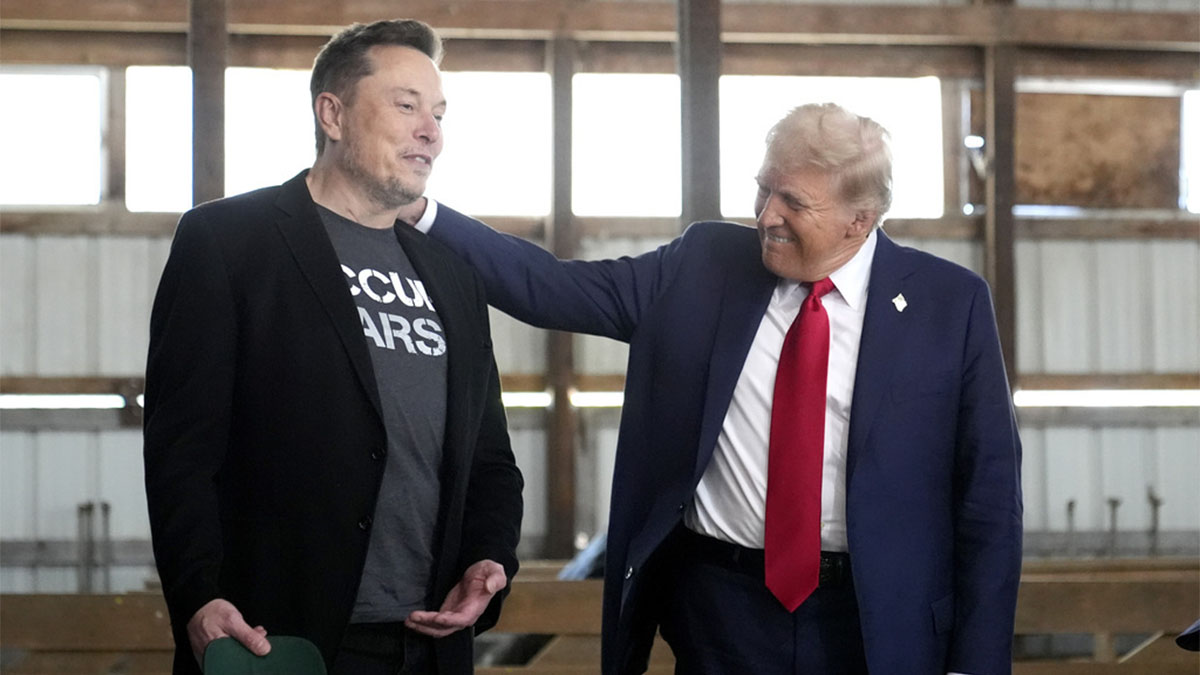Elon Musk, the CEO of Tesla Inc and SpaceX, has seen his net worth plunge below the $300 billion threshold for the first time since November reflecting broader market anxieties and targeted backlash against his increasingly political profile.
On Monday alone, Musk lost $4.4 billion, reducing his total net worth to $297.8 billion, according to data from the Bloomberg Billionaires Index. This follows a bruising $31 billion hit across Thursday and Friday last week, adding up to a staggering $134.7 billion loss since the beginning of the year.
Bloomberg noted that Musk was the sixth-largest individual loser on Monday’s list with the broader index tracking the world’s 500 richest people shedding a combined $271 billion—marking its third-worst day on record.
From $400 billion heights to a swift decline
The decline marks a dramatic reversal from just four months ago when Musk became the first individual in history to reach a $400 billion fortune. As Business Insider reported, this peak in December now looks distant as Tesla’s stock has tumbled nearly 40 per cent year-to-date. His fortune, once ballooning thanks to Tesla’s post-election market rally, has been steadily eroding amid shifting investor sentiment and mounting controversies.
Prior to Monday, Musk’s net worth had not fallen below $300 billion since November and while he still holds the top spot as the world’s richest person, the gap between him and Amazon founder Jeff Bezos has narrowed considerably.
Impact Shorts
More ShortsPolitical gamble proves costly
Much of Tesla’s current volatility stems from Musk’s high-profile alliance with President Donald Trump. While Tesla shares initially soared after Trump’s election, Musk’s decision to accept a formal advisory role in the administration has since turned Tesla into a lightning rod for criticism. Bloomberg reports that protests, boycotts and even acts of vandalism targeting Tesla facilities have been reported in both the US and Europe—reflecting a growing backlash against the company’s association with a polarising political figure.
Musk’s own behaviour hasn’t helped. His frequent and often incendiary social media posts have drawn criticism, alienated potential customers and frustrated shareholders. As Tesla’s brand becomes more tightly linked with Musk’s personal political leanings, many buyers and investors are rethinking their loyalty to the company.
Tariffs compound the trouble for Tesla
The financial pressures on Tesla have been exacerbated by the Trump administration’s recent announcement of sweeping tariffs. These protectionist measures aimed at curbing trade imbalances have instead rattled global markets and introduced new costs for American manufacturers. Despite his otherwise close ties to Trump, Musk has been vocally critical of the tariffs.
Over the weekend, he publicly called for a “zero-tariff” framework and a “free trade zone” between US and Europe urging policymakers to remove what he sees as harmful and inefficient economic barriers. His brother, Kimbal Musk, who also sits on Tesla’s board, joined the chorus of criticism describing the tariffs as a “structural, permanent tax on the American consumer.” Speaking on X, he warned that even if domestic manufacturing increases, the cost of goods will remain high, since “we are simply not as good at making all things.”
Concerns over Musk’s divided focus
Investor anxiety is also being fuelled by questions about Musk’s ability to effectively manage his growing portfolio of responsibilities. In addition to leading Tesla and SpaceX, Musk is currently involved with the White House’s DOGE office—an initiative aimed at improving government efficiency. While supporters view his involvement as an innovative bridge between tech and governance, critics say the role is distracting him from the operational needs of his companies.
When asked by Fox Business last month how he manages these roles simultaneously, Musk answered candidly: “With great difficulty.” His admission has only deepened investor concerns about Tesla’s leadership stability. Rumours of a potential exit from his advisory position were floated last week, but both Musk and the White House denied them and offered no timeline for any change.
Despite the significant erosion of wealth, Musk remains atop Bloomberg’s list of the world’s wealthiest individuals, still maintaining a lead of over $100 billion ahead of runner-up Jeff Bezos. However, that cushion is beginning to thin as Tesla faces ongoing scrutiny, brand fatigue and volatile market forces.
With the EV market growing increasingly competitive and consumer sentiment shifting, Tesla may need to recalibrate its messaging and leadership structure. Whether Musk chooses to double down on his political presence or refocus on his companies remains to be seen—but the market has already signalled its concern.
As Tesla’s shares continue to flounder and Musk’s fortune wavers, the question is no longer just about net worth—it’s about the long-term viability of a brand whose identity has become almost inseparable from its controversial figurehead.
)